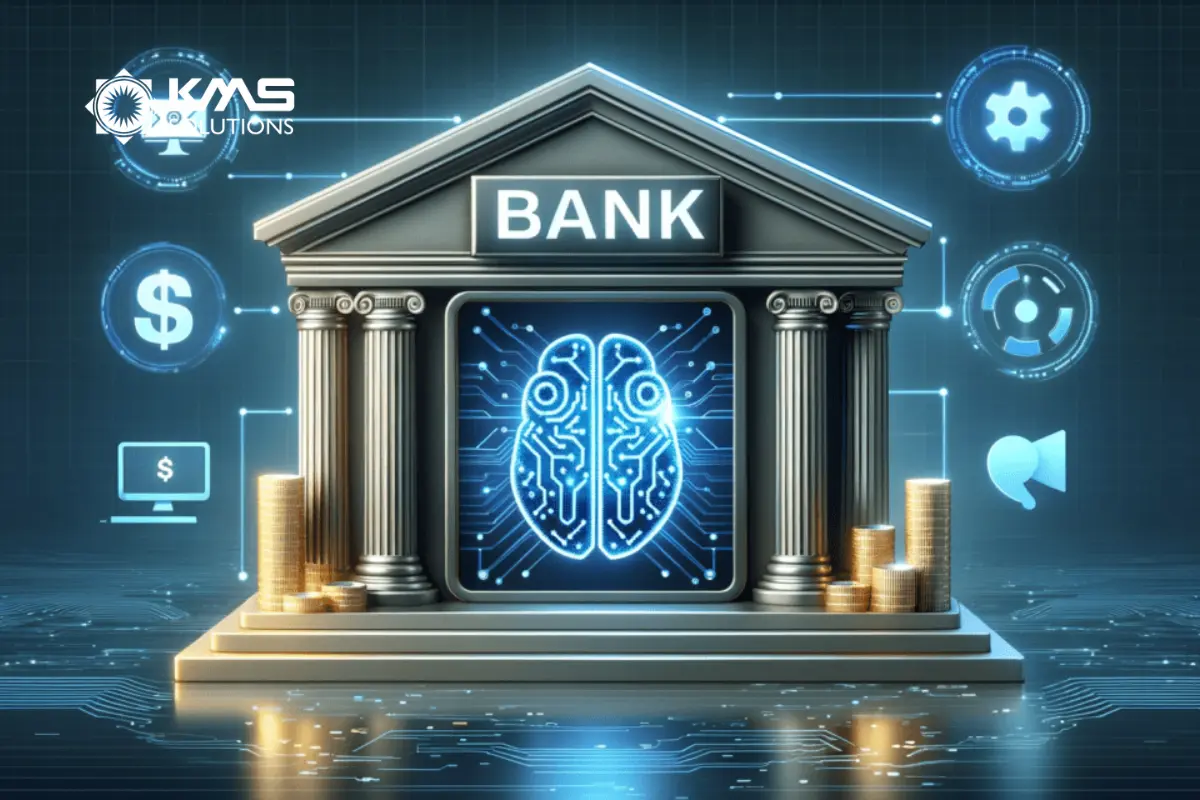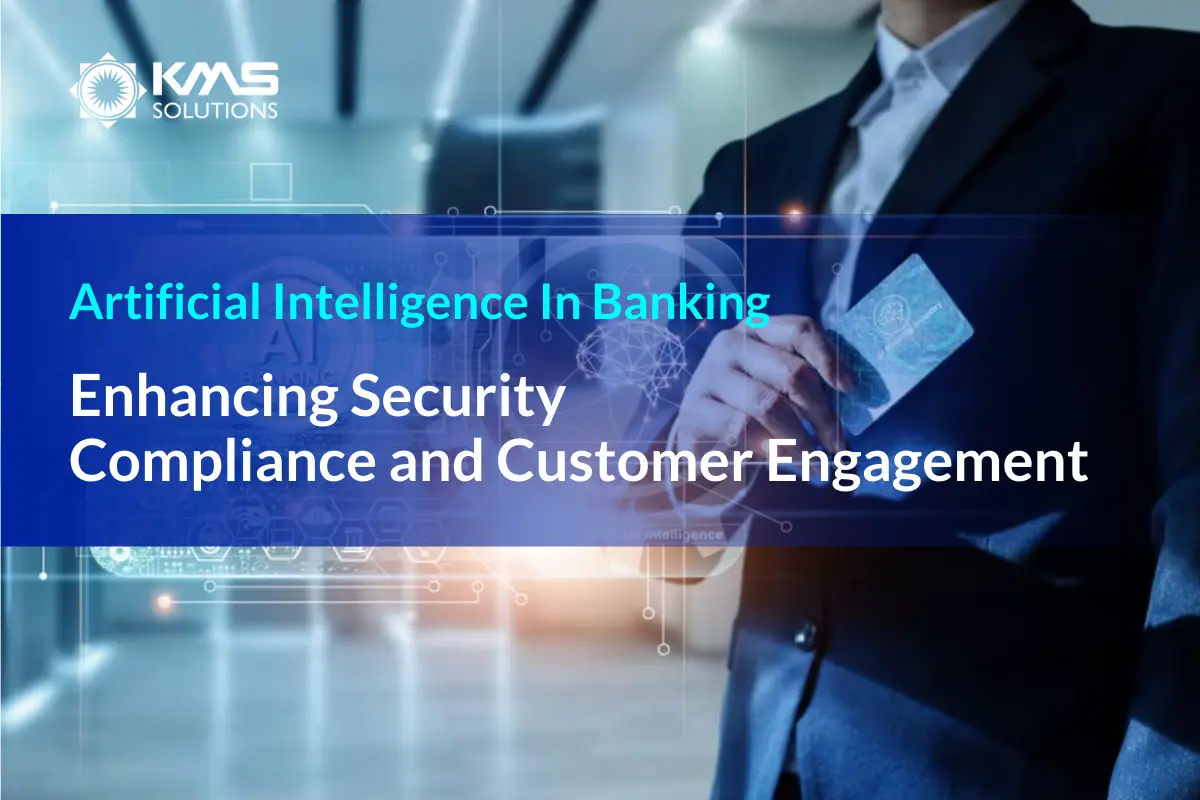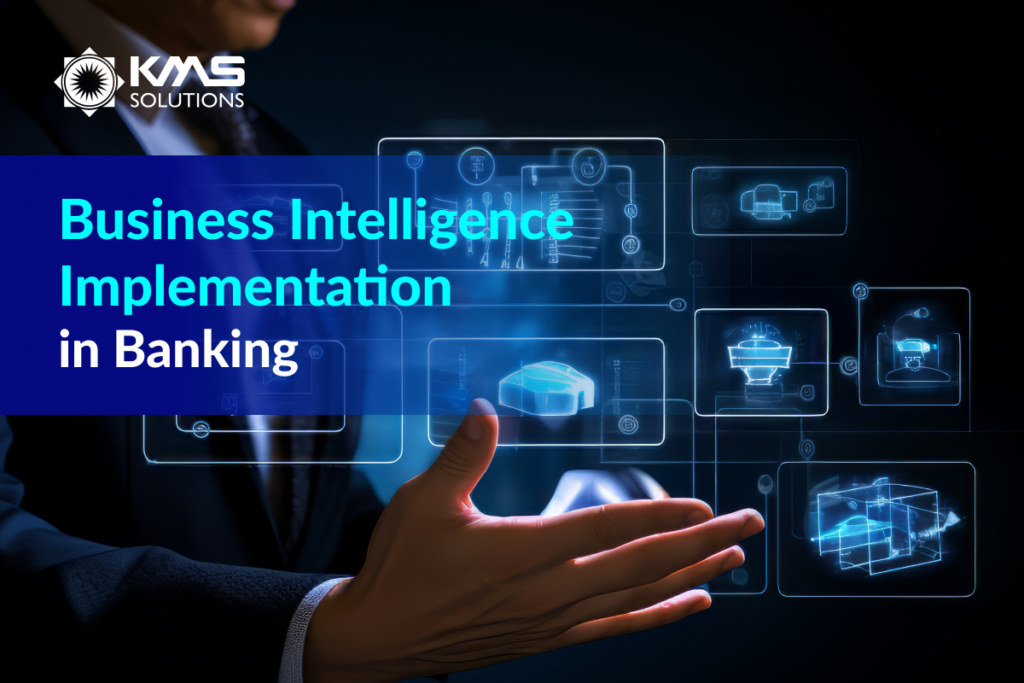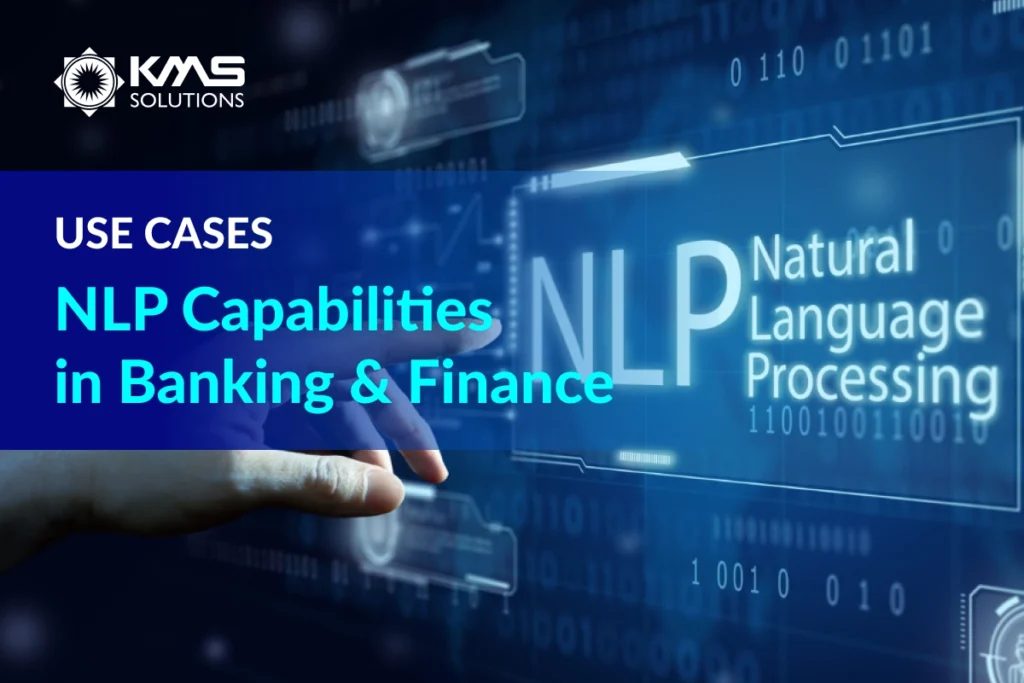In recent years, artificial intelligence (AI) has transformed various industries, with banking and financial services being one of the most dynamic sectors. With a steady focus on security, regulatory compliance, and improved customer experience, AI has opened up new possibilities and set higher standards for the banking industry. As AI becomes increasingly pivotal, understanding its applications—from fraud prevention to customer engagement—is key for banks looking to stay competitive in a digital-first world.
In this article, we will explore the various roles AI plays in banking, including advancements in compliance, customer experience, trading platforms, and risk management. We’ll also look at tools such as natural language processing (NLP), machine learning, and business process automation, all of which are essential to enhancing efficiency and delivering a seamless user experience. Finally, we’ll examine how organizations like KMS Solutions help banks harness the power of AI to maintain a competitive edge.
An Overview AI in Banking
Artificial intelligence in banking has grown from automating basic tasks to reshaping complex banking operations. AI has revolutionized banking in areas such as:
- Fraud detection: AI algorithms analyze transactions in real-time to flag suspicious activities, reducing fraud.
- Customer support: AI-driven chatbots handle basic inquiries, freeing up human agents for more complex issues.
- Risk assessment: AI models assess creditworthiness based on a wide range of data points, improving decision-making.
- Trading platforms: AI aids in market predictions, portfolio optimization, and enhanced trading strategies.
The use of AI in banking has expanded with technologies like natural language processing (NLP), machine learning, and business process automation, allowing banks to respond more flexibly to customer demands and operational challenges.
Security and Compliance: Leveraging AI for Risk Management
The banking sector faces stringent regulations that demand high levels of accuracy and compliance. AI’s potential in security and compliance is immense:
- Real-time fraud detection and prevention: AI-powered algorithms analyze transaction data to detect anomalies and prevent fraud. Machine learning enables these systems to learn and adapt, improving detection rates over time.
- Automated compliance checks: AI ensures banks adhere to legal requirements by automating compliance tasks. It reduces human error and makes processes more efficient, particularly for banks operating across multiple jurisdictions with differing regulatory requirements.
- Know Your Customer (KYC) and Anti-Money Laundering (AML): AI solutions streamline the KYC and AML processes by analyzing vast amounts of data quickly, identifying potential risks, and enhancing due diligence. This has become critical in combating financial crimes while reducing the workload on compliance teams.
These AI-powered solutions not only enhance security and compliance but also bring significant cost savings. By automating repetitive processes, banks can reallocate resources to strategic initiatives and improve overall operational efficiency.

Improving Customer Engagement and Satisfaction
Customer engagement has become a critical differentiator in banking. AI enables banks to personalize services and communicate with customers more effectively:
- Chatbots and Virtual Assistants: Powered by natural language processing (NLP), chatbots can handle routine queries, provide transaction information, and guide users through basic banking processes. As NLP technology advances, chatbots become more capable of understanding complex inquiries, creating a more natural interaction.
- Personalized Recommendations: Machine learning algorithms analyze user behavior to deliver personalized product recommendations, such as tailored credit card offers or investment options. These personalized suggestions are based on individual financial habits, making banking more customer-centric.
- Enhanced Customer Insights: AI gathers and interprets data to generate deep customer insights, helping banks understand what clients need and expect. It allows banks to proactively offer solutions and anticipate customer behavior, strengthening relationships.
By integrating AI into their customer engagement strategies, banks not only streamline interactions but also build customer loyalty. With each AI-powered interaction, banks gather valuable data that further refines the customer experience.
Business Process Automation: Increasing Operational Efficiency
With the extensive demands of today’s financial markets, banks are turning to business process automation (BPA) to enhance operational efficiency. BPA, driven by AI, accelerates routine tasks, reduces errors, and helps banks allocate resources more effectively:
- Document Processing and Management: AI automates tasks like document verification and processing, reducing human involvement and speeding up approvals. Optical character recognition (OCR) combined with machine learning extracts and interprets information from documents, making processes like loan applications faster.
- Transaction Processing and Reconciliation: AI can manage transaction data automatically, minimizing the risk of human error and reducing manual work in reconciliation tasks.
- Compliance Reporting and Audits: Automation also aids in regulatory reporting, a time-intensive requirement in banking. AI-driven solutions streamline data collection and reporting, helping banks stay compliant without overburdening staff.
Banks that adopt business process automation benefit from increased productivity and improved resource allocation, allowing teams to focus on strategic objectives rather than routine administrative tasks.
AI in Trading Platforms: Smarter, Data-Driven Decisions
AI in trading platforms is transforming the way financial markets operate. Leveraging data analysis, AI allows trading platforms to make informed decisions, optimize portfolios, and predict market trends:
- Predictive Analysis and Market Forecasting: Machine learning models analyze historical market data to predict future price trends, providing valuable insights for traders. AI-powered platforms can quickly adapt to market changes, allowing for timely trading strategies.
- Sentiment Analysis for Asset Pricing: AI uses natural language processing (NLP) to analyze social media and news sources, gauging market sentiment around particular stocks or sectors. This information helps traders make informed decisions based on real-time insights.
- Algorithmic Trading and Portfolio Management: AI enables algorithmic trading by automating the execution of trading decisions. By analyzing a massive volume of data, AI can detect patterns and make decisions with precision, optimizing portfolio performance.
With AI enhancing trading strategies, banks and financial institutions gain a competitive advantage by delivering high returns while managing risk effectively.
Emerging Technologies in AI: LLMs and Their Impact
One of the most intriguing advancements in AI is the emergence of large language models (LLMs), which have significantly enhanced the capabilities of NLP. Understanding the LLM meaning and potential is crucial for banks looking to stay ahead in customer service and risk assessment:
- Enhanced Language Understanding: LLMs, such as GPT (Generative Pre-trained Transformer) models, excel at understanding and generating human-like text, allowing for more natural interactions in customer service and support functions.
- Automating Complex Language Tasks: From drafting legal documents to generating reports, LLMs streamline time-consuming language-related tasks, saving banks time and resources.
- Improved Sentiment Analysis: LLMs have a sophisticated grasp of language subtleties, which is invaluable in analyzing customer feedback and market sentiment.
The incorporation of LLMs into banking operations not only optimizes internal workflows but also makes customer interactions more intuitive and effective.

Conclusion
As AI continues to reshape the banking industry, financial institutions must navigate the complexities of AI adoption carefully. Partnering with a trusted expert like KMS Solutions can help banks deploy AI solutions that are customized to meet industry standards and organizational goals.
KMS Solutions brings years of expertise in AI, data science, and software development, helping banks and financial institutions stay competitive in a digital-first world. From ai roles in software development to business process automation and everything in between, KMS Solutions is equipped to design, develop, and deploy AI solutions tailored to the needs of modern banking.











